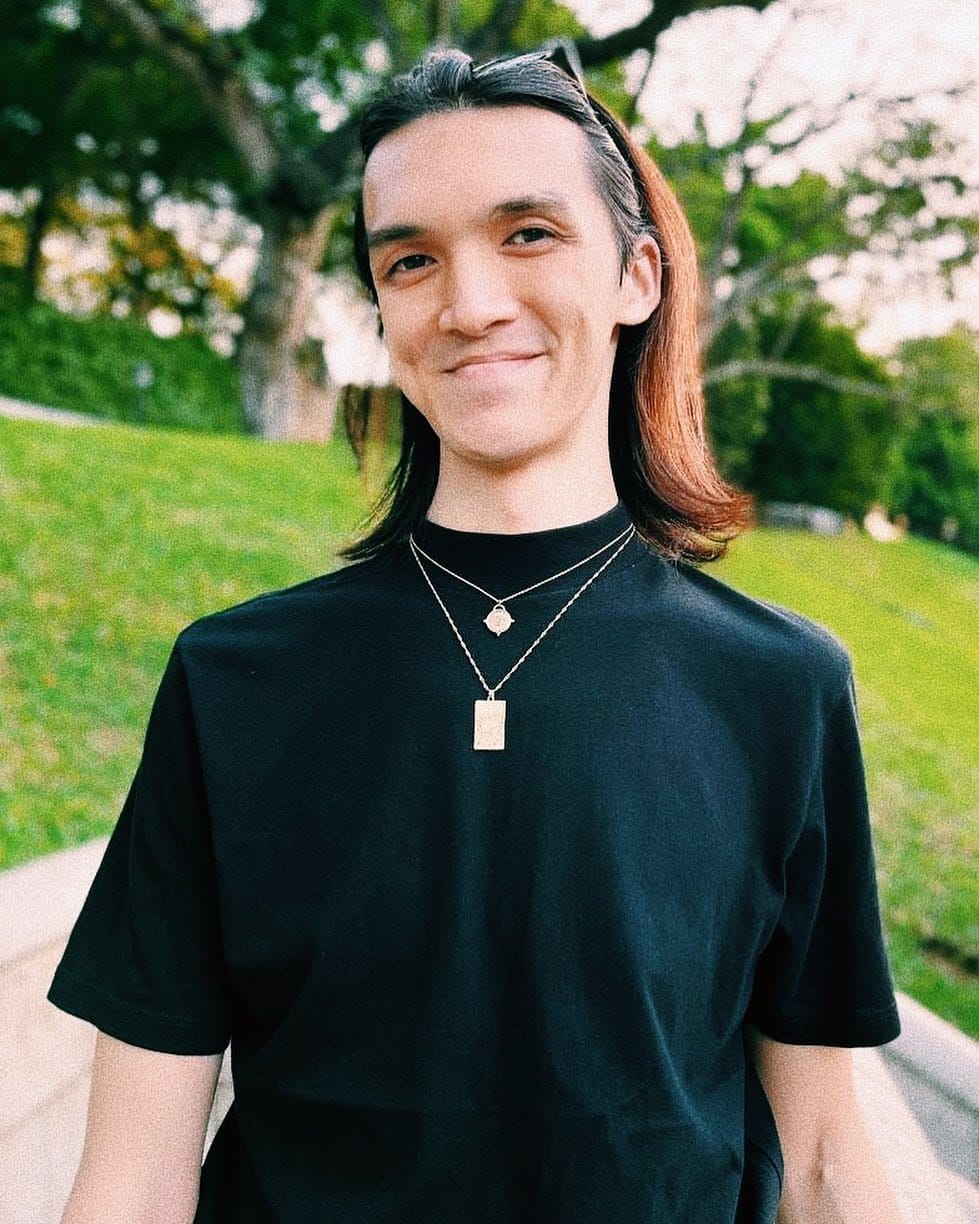
Embracing The Unknown: An Ongoing Journey with Mental Health
TW: Anxiety, Depression, Suicidal Ideation
It’s a little weird to start writing about my mental health after a difficult time in my life. As someone who coped with anxiety and depression for a few years, I should be a bit more comfortable with sharing about my mental health journey. I wish I feel wiser when I’m sharing my story because I still feel so lost. Life has been a rollercoaster ride since the beginning of 2024. I lost a family relative just before New Year’s Eve last year. Then, not long after, I lost my job. It felt like my entire life had been turned upside down, that nothing I do makes sense. I was trying so hard to feel a sense of purpose in my life, and I’ve only recently regained my footing.
So even if I have healthy coping mechanisms, I sometimes feel like I’m not the best person to talk about mental health because I know I’ll stumble again. I always thought that, by understanding anxiety and depression through research and therapy I’m more able to overcome my condition. But having that wisdom doesn’t necessarily mean that I’ve figured everything out. I suppose I’m realising again that it’s the same for everyone—sometimes we’ll fall, and that’s okay because we can always learn how we can try to get back up.

Structured Beliefs
But getting back up is easier said than done. It isn’t easy to always remember that, especially for me. I grew up thinking that I alone am the master of my fate, that every problem is solvable. Like if there’s an input, there’s bound to be output. It started when I was a kid: if I studied hard, I would get good grades.
With that, I grew up thinking that my brain was a logical device. I thought if I could understand what I was feeling to the thousandth degree, I could control my every thought and impulse. That I only needed to remember certain lessons or perspectives to be better. I thought that by constantly improving myself, I could get stronger and more resilient because I’m more able to cope with life’s challenges.
Having a ‘solid’ framework in my thinking worked for me, even back in secondary school since it was a very structured environment. So I don’t really remember having anxiety at school. I was only worried about my grades at the most. Even when I was studying for my degree, I didn’t have a lot of anxiety either. I was never worried about my grades or my assignments because whatever effort I put in yielded the results I wanted. When I became the valedictorian of my class, I thought I had everything I needed to ‘succeed’ in my life.

Shift Control
So I worked hard to continue on what I thought was an upward trajectory in my life. I could cope with the first few years of working full-time, and I’m very thankful to have met people who supported my creativity and vision. But soon, I had to switch between several jobs before landing a role at a large corporate office. It was, of course, a fast-paced environment.
Again, I thought all I needed to do was to put in the work. I tried my best to make sure I kept track of all of my assignments. But there was a miscommunication between my colleagues. Even then, one of my managers decided to pin it on me, and no one vouched for me when I wasn’t the source of the problem.

That mishap at work challenged my self-worth to the core, and I remember on the day that it happened, the pain was so great that I decided that life wasn’t worth the pain anymore. As the day passed, I found myself doubting my every move, which made me feel more anxious about everything because it felt like I needed to get everything right. It felt like I needed so much control that when I didn’t have it, I would spiral into the abyss that I’d never escape from. That was when I decided to seek help.
Looking back, I had that breakdown probably because of it affected my perception of control. I’d already done everything I could to finish all my work. But, even then, I was still penalised for it. It felt like everything I do will never be enough, and that I have amounted to nothing despite all of my hard work. It took me a long time to recover and rebuild my self-worth. I had to put in a lot of effort in remembering that my work is only a part of my life, and that I deserve happiness even if I fail.
In Singapore, you can call the Samaritans of Singapore Hotline, the Institute of Mental Health’s Helpline: 6389 2222, or the Singapore Association for Mental Health Helpline: 1800 283 7019
You can also find a list of international helplines here. If someone you know is at immediate risk, call 24-hour emergency medical services.

Starting Counselling
A friend suggested I go for counselling after I told them I had suicidal thoughts, and I did. I wasn’t afraid of it; there was already a lot of content then that broke down the stigma of seeking help for anxiety and depression. So I decided to take up the courage and try counselling.
During my first session, the counsellor and I went through honouring how my body felt and acknowledging that I was experiencing burnout. The counsellor then asked me to start journaling every day. When the session ended, I was a bit surprised when my therapist asked if I wanted to meet for the week after because I thought I had learned everything that I needed to know.
Still, there was a part of me that didn’t think I needed all that much help. I still saw myself as a computer with faulty software. All I needed to do was to go there, learn something new about myself, and then I’d be fixed. I thought all I needed was one therapy session, and I’d be good to go. I wanted things to be simple.
Of course, things aren’t that simple.
Things still get intense for me. After going for counselling sessions, I become even more cognisant of what I’m feeling. It’s like I can feel so clearly the entire weight and shape of my emotions. It can be overwhelming at times. With my anxiety, it feels like I’m under the whim of something much bigger than yourself. Sometimes, it even feels like it takes over my body. As someone who feels my emotions so clearly, it does get scary because I can feel nothing else but my anxieties. It blocks me out of perspectives that can help me overcome the challenges that I’m facing.
So I continued the counselling sessions for the next two years. I learned more about my coping mechanisms for stress and anxiety. I learned that there are some things that I can control, and some that I can’t: even if I can’t control how my co-workers treat me, I can control the quality of my work. I can’t control how my company treats me, but I can make a plan for what I want to do next.
You can find counsellors with all kinds of niche here at A Space Between too.
Find a therapist that suits what you need today.

A Constant Decision
With all of that being said, I find myself still dealing with all my anxiety about the future and how dejected I feel about my career and my life. Sometimes it feels like I already have all the colours I need to paint, but the canvas is still in black and white. There are still days when I feel so powerless, and my heart will start to palpitate. I’ll still spiral and catastrophise the worst things that can happen to me.
But it’s not every day. I’ve gained a strong perception of myself and the world, so it still gets difficult to remember the lesson. I still pay attention to how I think and what I think. It takes a lot of work. So it’s a constant decision for me. I have to make that a conscious choice because I tend to overthink, and it’s difficult to get out of a spiral. But I know by trusting myself, I can find faith and resilience within me, instead of relying on validation from people and things beyond my control.

It’s the Small Things
All of that being said, practicing resilience is tough when you don’t have the capacity. For me, taking care of myself was one of the most crucial steps in building my resilience. It’s really the small things. Drinking enough water. Eating right. Remembering to breathe. Because a lot of the time, when you feel like you’ve always had to work and fight, it feels like every path ahead of you is lit by fire. So even the little things feel like a world away, and it’s easy to forget the things that are important to you and the things that make you happy.
As a writer, I think I have a cheat code because I know the power of words. So I view all the advice I get about how to get out of a spiral or get out of my anxiety as incantations, like little spells to get me going and remind myself how I can take care of myself. It may not always work, but it’s a small piece of comfort that I can afford in the face of the many unknowns in life.
There’s still plenty of journeying ahead. It used to terrify me because I didn’t know what would happen next. But I remember that I have grown a lot, and I have learned a lot. So I know that, no matter what happens, I trust myself to make the decisions that make sense for me, no matter what stage of my life I’m at.

Benedict believes that each of us has a story that deserves to be brought to light. They are always on the hunt for little voices hiding underneath our noses.
In 2021, they worked on thenational.api—a commission for the inaugural Southeast Asian Queer Cultural Festival by ASEAN SOGIE Caucus.
Their short fiction has also been published in two Singaporean anthologies: ‘Call and Response 2’ and ‘The Second Link’.
At A Space Between, Benedict hopes to uncover stories about how LGBTQIA+ people navigate through mental health and aging. With those stories, they hope to encourage a kinder, more thoughtful approach to moving through life.
Even then, there are more stories to tell. Appearing in two performances in the Devising with Actors and Playwrights programme by The Necessary Stage, Benedict is relentless in bringing more stories to light.


